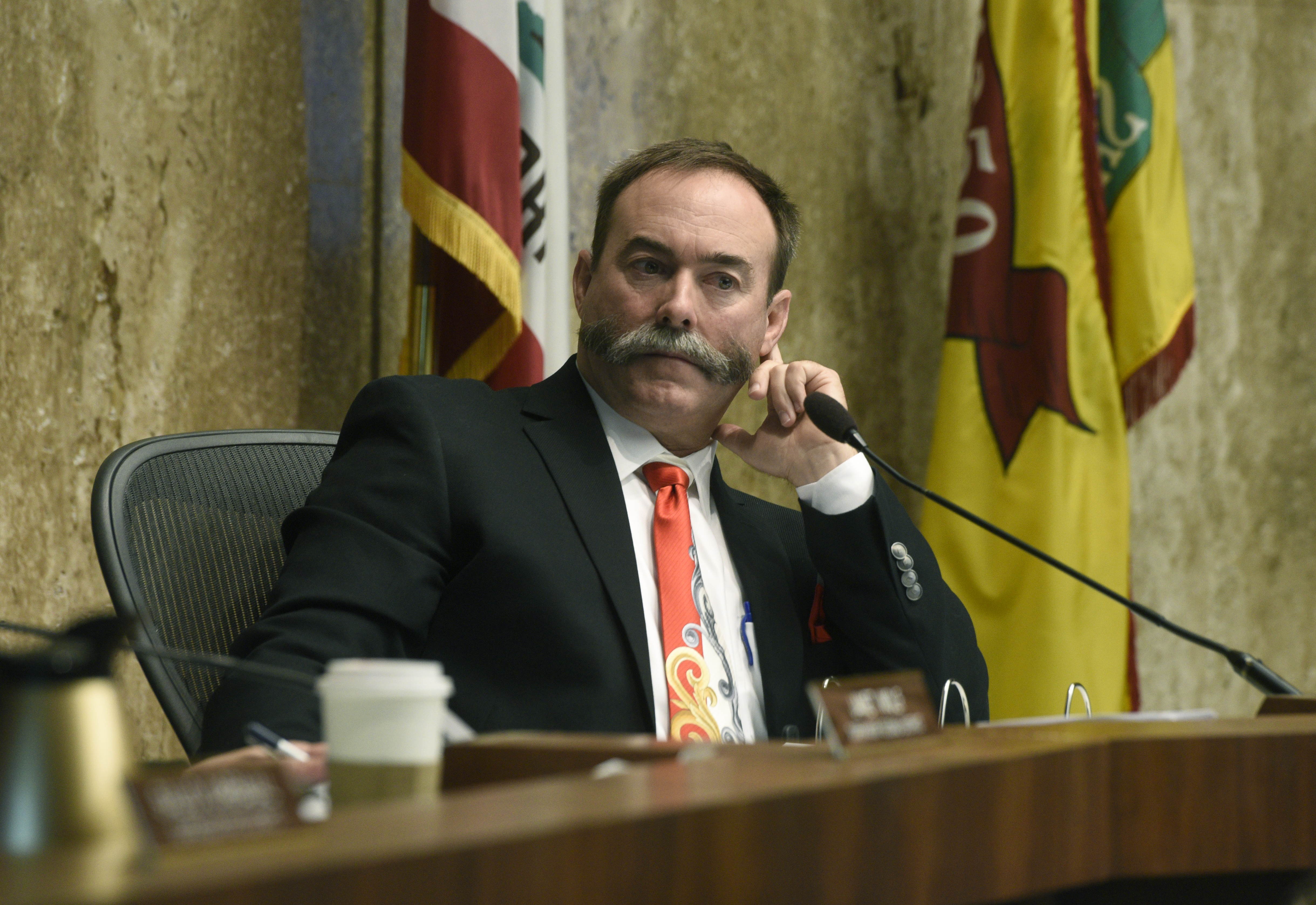Farmers Diverge on Trump Immigration Plans
Supervisor Peter Adam Says Mass Deportations May Be a Good Idea

About a year after the Department of Homeland Security forced Bonita Packing Company to terminate nearly 300 undocumented farmworkers, the large produce company is still down around 200 employees. “Losing our people a year ago was not a good thing,” said managing partner Mitch Ardantz. “It’s never a good thing.” The same immigration enforcement action targeted Adam Brothers Family Farm, displacing nearly as many farmworkers who lacked legal status, some of whom had been there for decades.
But these individuals did not face deportation; they “just went across the street and got a new job, and presented false identification again,” claimed County Supervisor Peter Adam, who co-owns Adam Brothers with his two younger brothers.
Now the future for immigrants across the country is the subject of great speculation as President Donald Trump’s policy plans remain wildly unclear. He expressed openness this week to a legal pathway for undocumented immigrants after vigorously campaigning on the premise of border security and mass deportation. In any case, he has consistently stressed removing unauthorized immigrants from America.
In Santa Barbara County, a labor shortage has strapped the agriculture industry for years. So what do growers think would happen here if the estimated 70 percent of laborers — nearly 12,000 — who are undocumented were deported?
“As long as [Trump] does it in conjunction with cutting off the welfare state as we know it, it’ll probably be okay,” said Adam, who stuck a Melania Trump bumper sticker on the back of his car. Adam estimated half of the roughly 120,000 Medicaid recipients in Santa Barbara County could work in the fields if they were kicked off welfare. “We have a lot of people right now who would rather not work,” he said. “California has 12 percent of the world’s population and 34 percent of the nation’s welfare. In a heavily agriculture state, it is just an idiotic burden on the businesses that employ the low-end labor. We can’t all be Google.
“What we’ve got here is a completely unsustainable system,” Adam continued. “We have to get this thing squared away. I don’t think he’ll go on a mass deportation spree, [but] maybe he should. … Yes, it causes some pain and some dislocation, but things got too far the other way.”
In recent years, Adam Brothers and Bonita Packing Company (a k a Bonipak), which merged with Betteravia, have brought in hundreds of foreign guest workers under the federal H-2A program. “It is an expensive and somewhat of a tedious program, but the good news is you have a solid workforce,” manager Ardantz said. Adam said he hated the program, calling it “stupid” and “horrific.”
An expanded guest worker program like the original 1940s bracero program is absolutely necessary, said Andy Caldwell, founder of COLAB (Coalition of Labor, Agriculture and Business). Caldwell emphasized Congressmember Salud Carbajal and former lieutenant governor and agriculture secretary contender Abel Maldonado were both sons of men in the bracero program. “It certainly didn’t do much harm to [them],” he said. (Carbajal has spoken out against the program because he thought his father was exploited by it.)
“I don’t think it’s a realistic scenario to deport millions of people and not have a guest worker program,” Caldwell added. “Everyone wants to talk about Trump devastating ag. [But] $15 dollar minimum wage and ag overtime on steroids is going to put just a big print on ag as anything else.”
Trump could mandate the E-Verify program, which checks the validity of Social Security documents. Few businesses use it in states where it is not required. Adam explained growers could not certify workers’ documents without individually installing E-Verify, which would be a “suicidal thing to do in the produce industry.”
Other farmers note white workers haven’t applied for jobs in the field in more than a decade, countering Trump’s long-stated belief that foreigners steal American jobs.
As for his take on the administration’s long-term impacts, Bonipak’s Ardantz declined to “throw [his] hat into the political ring,” saying, “We’re simply trying to run a third-generation family business here. We’re trying to do it within the confines of the law … We need labor to operate our business. You can draw your own conclusions. It’s pretty straightforward.”



